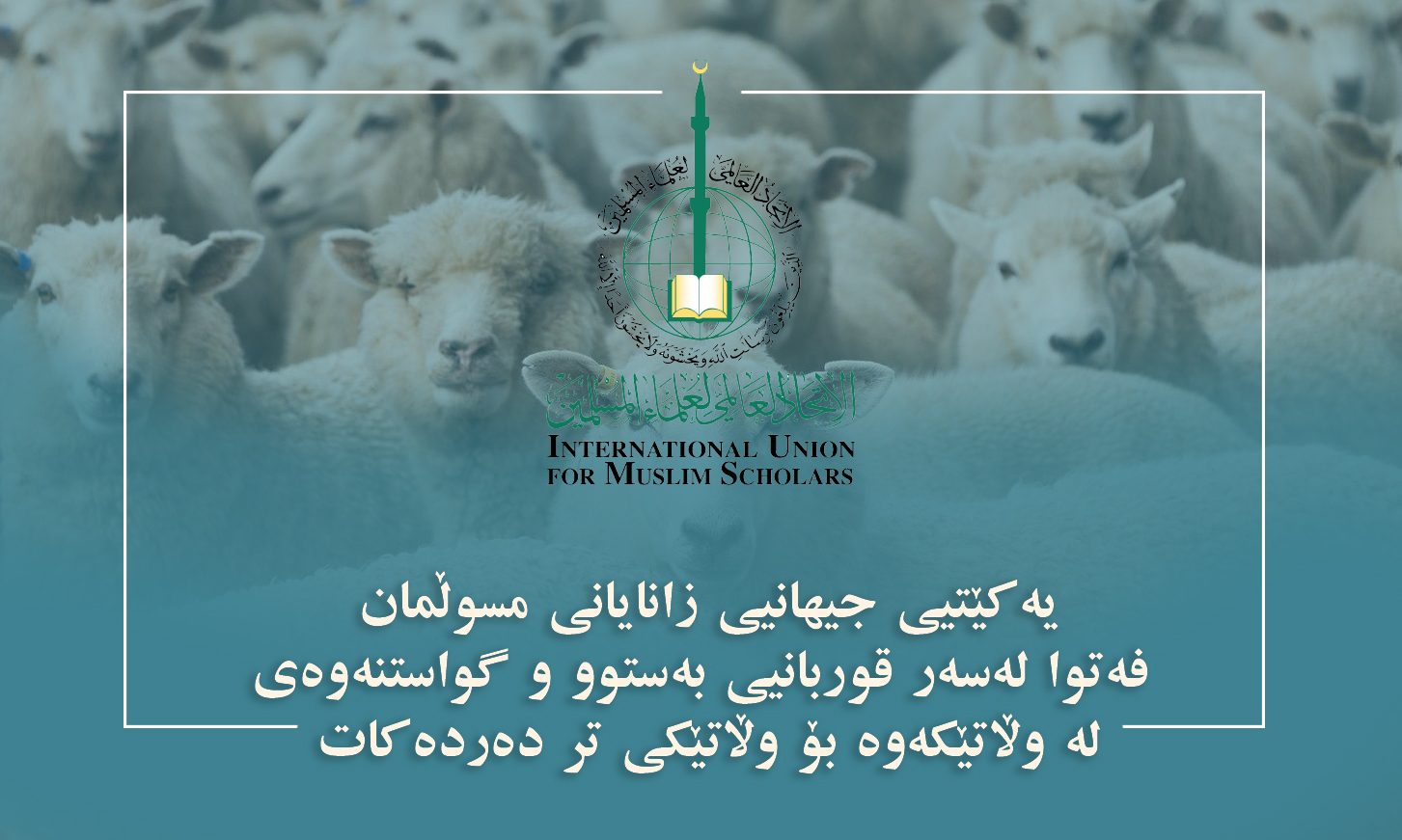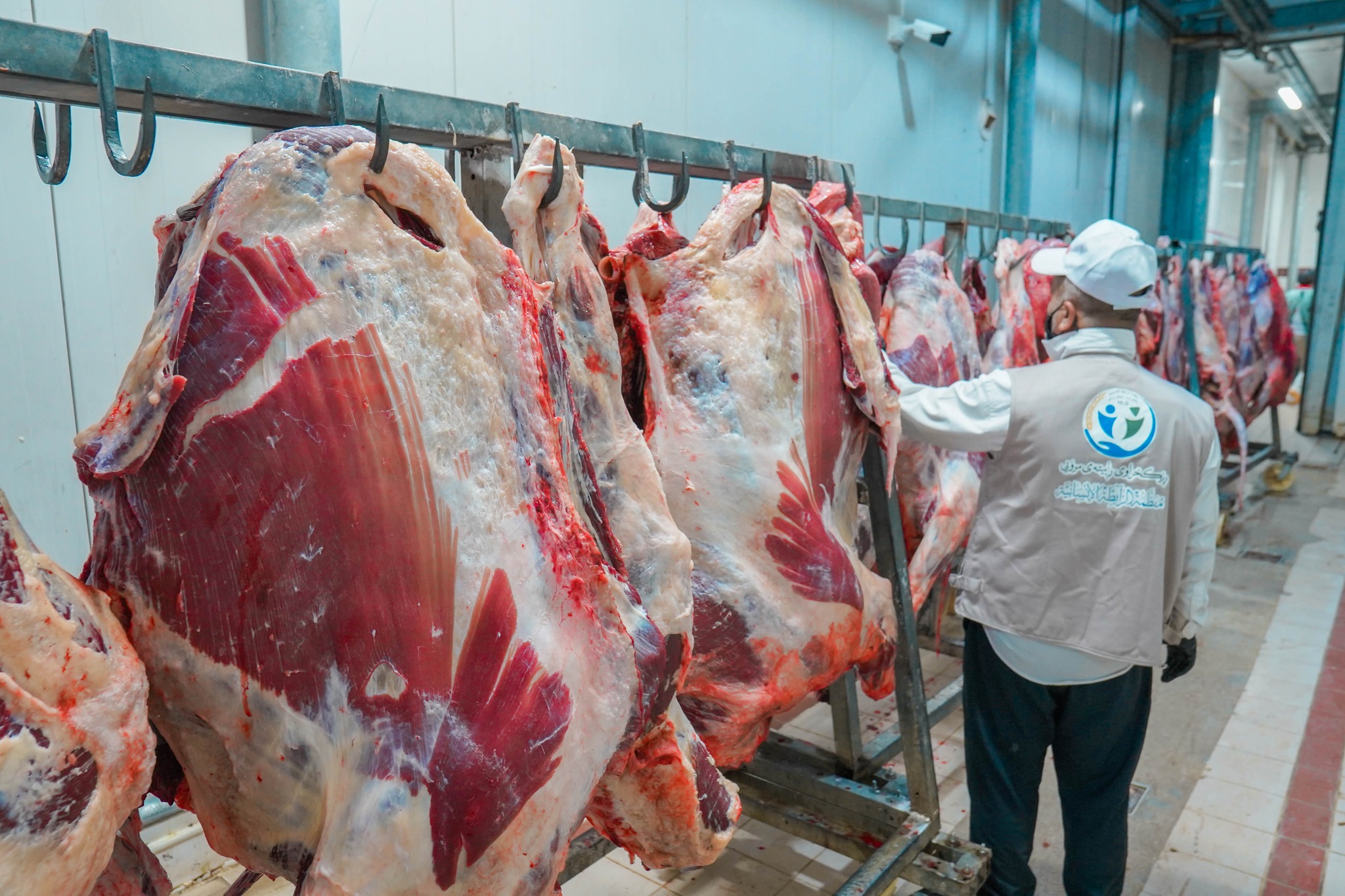Aug 10 2025

Question:
Respected members of the Committee for Ijtihad and Fatwa at the International Union of Muslim Scholars,
After greetings and respect,
It is clear to you all what the current situation of the Islamic world is like and the unfortunate events we are passing through, chief among them being the catastrophes that have befallen our brothers in Gaza and other oppressed Islamic countries. This, in turn, has brought about a level of poverty and destitution that is not hidden from any wise person. In this regard, the idea of a frozen Qurbani (sacrificial animal) project has been introduced by a number of organizations and institutions working in the field of charity and humanitarian aid. We would like to request from you to clarify the Sharia rulings related to frozen Qurbani for us, so we may know its ruling, the extent to which its distribution can be delayed until after Eid, and what must be taken into consideration in this project.
My full thanks and appreciation to you.
Answer:
In the name of Allah, praise be to the Lord, and prayers and peace be upon the pure soul of the Prophet ﷺ, his family, and companions. To proceed:
After deliberation and discussion of this matter by the Fatwa Committee, the following decision was made:
First: The committee believes that the Qurbani is an emphasized Sunnah (Sunnah Mu'akkadah), according to the opinion of the majority of scholars, with the exception of Abu Hanifa and a narration from Malik and a number of others who say it is obligatory (wajib/fard) for the wealthy.
It is also a ritual that Islam has emphasized and has indicated its greatness, as Allah the Almighty says: {So pray to your Lord and sacrifice [to Him alone].} [Al-Kawthar: 2].
We also have several hadiths in this regard, such as the hadith of Muslim: "The Prophet ﷺ sacrificed two horned, black-and-white rams with his own hands, mentioning Allah's name and saying the takbir over them, and placing his foot on their sides."
Because the Qurbani is "the most beloved deed to Allah the Almighty on the days of Eid al-Adha, and on the Day of Resurrection, it will be returned just as it was slaughtered. Before its blood falls to the ground, it falls in a good and desired place. It is also a Sunnah of the Prophet Ibrahim—peace be upon him—because Allah the Almighty said: {And We ransomed him with a great sacrifice} [As-Saffat: 107]. Also, the one who performs the sacrifice will have good deeds written for him equivalent to the number of hairs on the sacrificial animal. It is not good for someone who is able to do it not to do so, and any money spent on charity is not as good as performing the sacrifice, on the condition that the intention is to follow the Sunnah of the Prophet, is free from bad intentions, and is in accordance with what the Sharia has prescribed." - Al-Shawkani in (Nayl al-Awṭār) (5/129).
Second: By the consensus of scholars, it is permissible to delegate another person for the slaughter of the Qurbani (appointing an agent), because Allah the Almighty says: {So send one of you with this, your silver, to the city} [Al-Kahf: 19], and also because of what is stated in (Al-Mustadrak) of Al-Hakim: "O Fatimah, stand and go to your sacrifice and witness it," because the ruling of delegation is recognized.
From a Sharia perspective, it is more desirable for the one offering the sacrifice to be present and witness their sacrifice, but if it is not possible for them, there is no harm in it. It is also permissible to entrust the task to another person, whether inside or outside the country, according to their own wish, and also according to the achievement of a legitimate Sharia benefit. But it is better for one who is able to perform one sacrifice in their own country and another one abroad. If they do one of them according to their ability, that is sufficient.
Third: The committee sees that what is intended is the intention of the agent, because the sacrifice requires the intention of seeking reward from them, so the agent must not be without intention at the time of slaughter.
Fourth: The committee believes it is permissible to perform the sacrifice on the first day of Eid al-Adha and the three days following it. This is according to the opinion of Al-Shafi'i and Al-Awza'i, which is also the opinion of a number of the successors (Tabi'in). This is to facilitate for those offering the sacrifice and for the institutions specializing in Qurbani, especially since some of those offering the sacrifice hand over the money for the sacrifice late. This is all because of this hadith: "All the days of Tashreeq are days of slaughter." Narrated by Ahmad and Ibn Hibban.
Fifth: The meat of the sacrifice can be stored for after the days of Eid, and there is no limit to the time of storage, because the Prophet ﷺ permitted this without specifying a time. The evidence for this is the narration of Al-Bukhari: "Eat, give to others, and store, for that year the people were in hardship and I wanted you to help them."
Therefore, it is permissible to delay the distribution of the sacrificial meat until after the four days of Eid al-Adha, even if it extends for several months. This is because the Sharia has permitted it, as it contains a benefit for the poor, the needy, and others who benefit from this sacrificial meat.
Sixth: It is permissible to freeze and package the sacrificial meat, as this is another form of storage. Since storage is permitted in Sharia, then all the means that achieve it are permissible. Because the means take the ruling of their objectives, and no specific means should be designated as long as the Lawgiver has not designated it. In fact, freezing is better for storage, because the meat can be preserved scientifically and healthily for a long time. It can be distributed throughout the year if necessary, and this achieves the benefits and Sharia objectives, due to the large number and breadth of those who benefit from this meat, whether it reaches the poor and needy frozen or packaged.
Seventh: The committee believes it is permissible to transfer the sacrifice—frozen or packaged—from one country to another, for relatives, or for people who are in greater need than the people of one's own country. But if there is no need for its transfer, then there is a difference of opinion among scholars, ranging from disliked, to permissible, to forbidden. But the committee believes that its transfer is permissible, and this is also the opinion of contemporary scholars. Especially because it is very necessary for those countries where war and emergencies are frequent and much poverty results, chief among them the catastrophe of Gaza. Therefore, from a Sharia perspective, it is permissible to transfer the sacrifice from the country of the one offering it to Gaza, Sudan, and other Islamic countries in similar situations who are in greater need of regular food and drink, let alone meat that they might benefit from for several days and weeks.
So the conclusion is that it can be transferred from one country to a country that is in greater need, which is a facilitation for people to be able to keep this ritual alive and is also a facilitation for charitable institutions to act as agents for people in buying and sacrificing, and then freezing and distributing it to those Islamic countries that are in greater need. This is to achieve the saying of Allah the Almighty: {And when they are [lifeless] on their sides, then eat from them and feed the needy who are content and the one who begs} [Al-Hajj: 36].
As a precaution and to exit from the difference of opinion, the committee suggests that whoever performs the sacrifice in this way or delegates a party for it, should bear all costs in addition to the cost of the sacrifice, and for this, there is a reward for them.
And Allah the Almighty is the guide to what is right and true.
Praise be to Allah, the Lord of the Worlds.
And may peace and blessings be upon our Master Muhammad and upon his family and all his companions.
Issued by the consensus of the Committee for Ijtihad and Fatwa at the International Union of Muslim Scholars. The members of the committee are:
Ali Al-Qaradaghi: Chairman of the Committee
Fadl Murad: Secretary-General of the Committee
Ajil Al-Nashmi: Member
Mohamed El-Hassan Dedew: Member
Mehmet Görmez: Member
Abdelhay Youssef: Member
Khaled Hanafy: Member
Mustafa Dadaş: Member
Waniss Mabrouk: Member
Salem Al-Sheikhy: Member
Farida Sadek Zouzou: Member
Masoud Sabri: Member
Ibrahim Abu Mohamed: Member
Sultan Al-Hashimi: Member
Noureddine Khadmi: Member
Ahmad Hawi: Member
Ahmed Kafi: Member
Ekrima Sabri: Member









